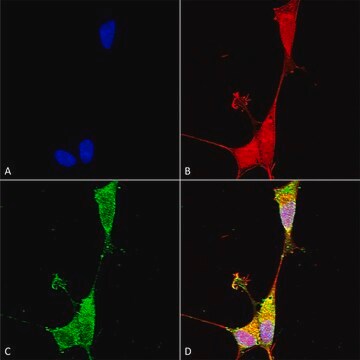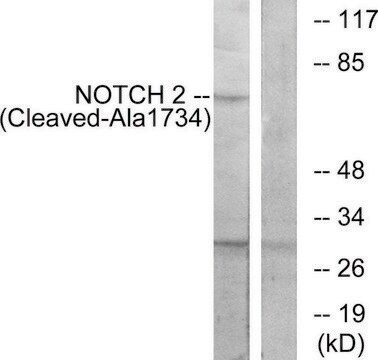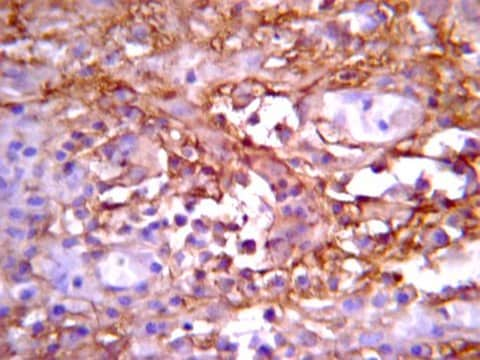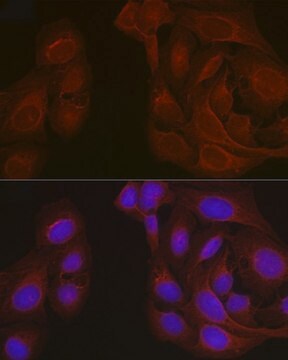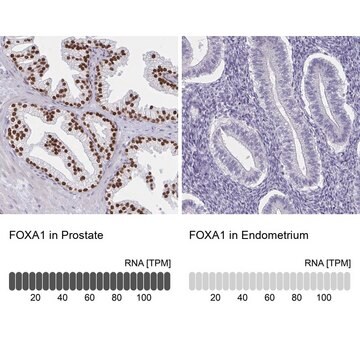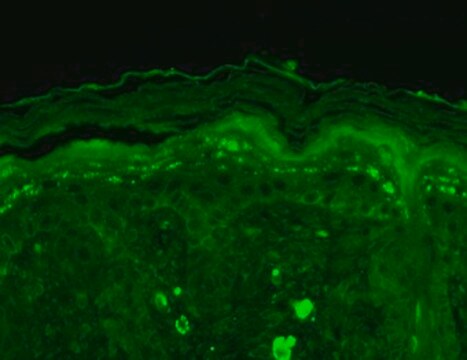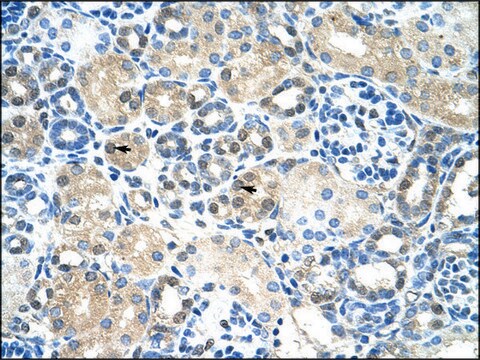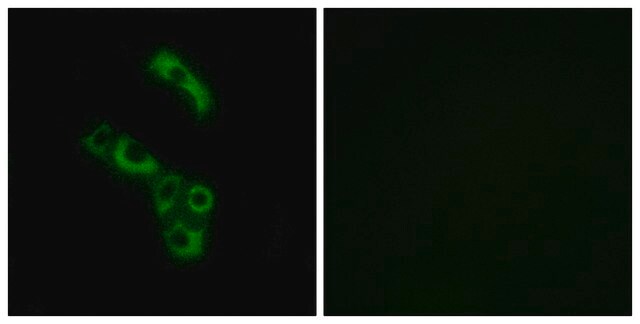SAB4502019
Anti-NOTCH1 (Cleaved-Val1754) antibody produced in rabbit
affinity isolated antibody
Synonym(s):
NOTC1, Notch homolog 1, neurogenic locus notch 1, notch 1 (translocation-associated), translocation-associated (Drosophila) (TAN1)
About This Item
Recommended Products
biological source
rabbit
Quality Level
conjugate
unconjugated
antibody form
affinity isolated antibody
antibody product type
primary antibodies
clone
polyclonal
form
buffered aqueous solution
mol wt
antigen 110 kDa
species reactivity
rat, mouse, human
concentration
~1 mg/mL
technique(s)
ELISA: 1:5000
immunohistochemistry: 1:50-1:100
western blot: 1:500-1:1000
NCBI accession no.
UniProt accession no.
application(s)
research pathology
shipped in
wet ice
storage temp.
−20°C
target post-translational modification
proteolytically cleaved (Val1754)
Gene Information
human ... NOTCH1(4851)
Related Categories
General description
Anti-NOTCH1 (Cleaved-Val1754) Antibody detects endogenous levels of fragment of activated NOTCH1 (Cleaved-Val1754) protein.
Immunogen
Immunogen Range: 1735-1784
Application
Biochem/physiol Actions
Features and Benefits
Physical form
Disclaimer
Not finding the right product?
Try our Product Selector Tool.
Storage Class Code
10 - Combustible liquids
WGK
nwg
Flash Point(F)
Not applicable
Flash Point(C)
Not applicable
Choose from one of the most recent versions:
Certificates of Analysis (COA)
Don't see the Right Version?
If you require a particular version, you can look up a specific certificate by the Lot or Batch number.
Already Own This Product?
Find documentation for the products that you have recently purchased in the Document Library.
Our team of scientists has experience in all areas of research including Life Science, Material Science, Chemical Synthesis, Chromatography, Analytical and many others.
Contact Technical Service
